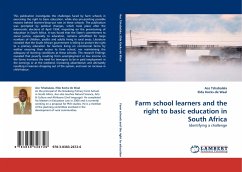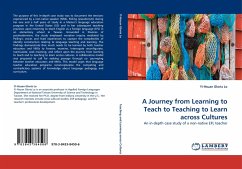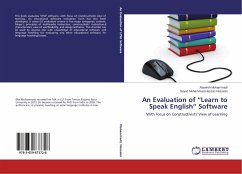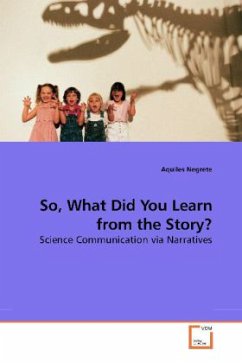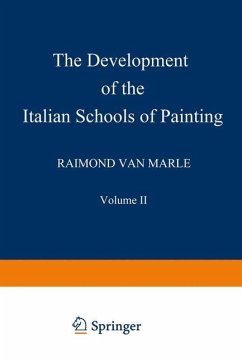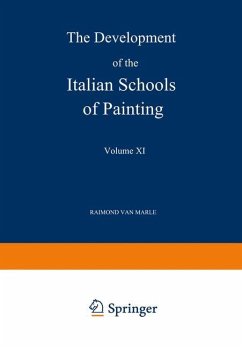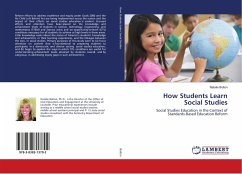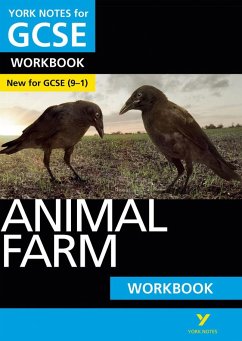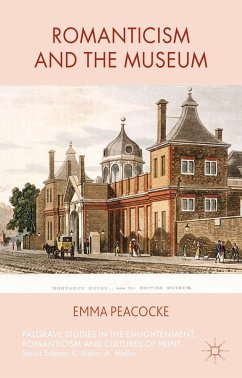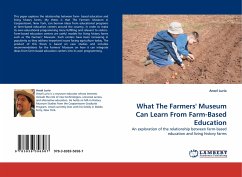
What The Farmers'' Museum Can Learn From Farm-Based Education
An exploration of the relationship between farm-based education and living history farms
Versandkostenfrei!
Versandfertig in 6-10 Tagen
32,99 €
inkl. MwSt.

PAYBACK Punkte
16 °P sammeln!
This paper explores the relationship between farm- based education and living history farms. My thesis is that The Farmers' Museum in Cooperstown, New York, can borrow ideas from educational programs at farm-based education centers around the country, in order to make its own educational programming more fulfilling and relevant to visitors. Farm-based education centers are useful models for living history farms such as The Farmers Museum. Such centers have been increasing in popularity as they address important issues facing agriculture today. The product of this thesis is based on case studie...
This paper explores the relationship between farm- based education and living history farms. My thesis is that The Farmers' Museum in Cooperstown, New York, can borrow ideas from educational programs at farm-based education centers around the country, in order to make its own educational programming more fulfilling and relevant to visitors. Farm-based education centers are useful models for living history farms such as The Farmers Museum. Such centers have been increasing in popularity as they address important issues facing agriculture today. The product of this thesis is based on case studies and includes recommendations for the Farmers' Museum on how it can integrate ideas from farm-based education centers into its own programming.



